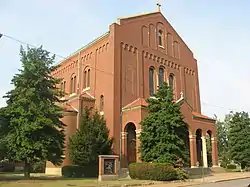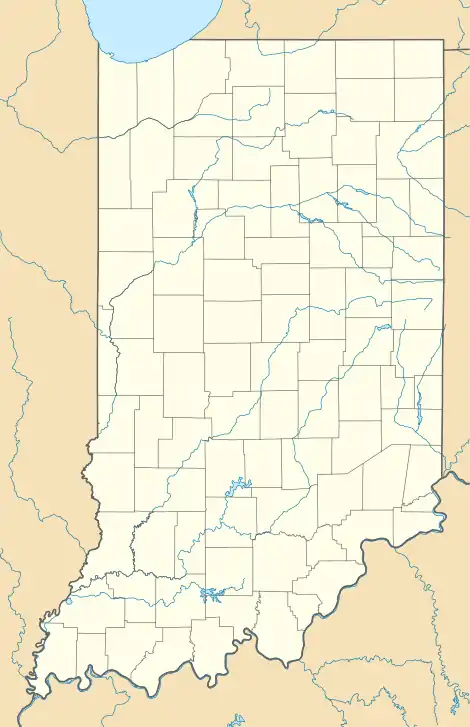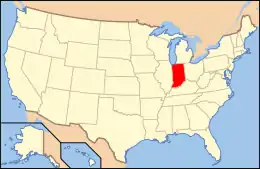Lincolnshire Historic District | |
 St. Benedict's Cathedral | |
  | |
| Location | North sides of Lincoln Ave from Harlan Ave to Benninghof Ave, Evansville, Indiana |
|---|---|
| Coordinates | 37°57′13″N 87°33′52″W / 37.95361°N 87.56444°W |
| Area | 55 acres (22 ha) |
| Built | 1923 |
| Architect | Anderson, John Richard; Veatch, Henry Babcock |
| Architectural style | Colonial Revival, Tudor Revival |
| NRHP reference No. | 89001426[1] |
| Added to NRHP | October 2, 1989 |
Lincolnshire Historic District is a national historic district located at Evansville, Indiana. The district developed after 1923, and encompasses 95 contributing buildings in a predominantly residential section of Evansville. The district's homes have a mixture of Tudor Revival and Old and new World revival designs, including Colonial Revival. St. Benedict Cathedral and Bosse High School are two landmark buildings from the 1920s and 1930s.[2]
It was listed on the National Register of Historic Places in 1989.[1]
Gallery
 The Pearl B. Combs House (built 1931, Tudor Revival style)
The Pearl B. Combs House (built 1931, Tudor Revival style)
References
- 1 2 "National Register Information System". National Register of Historic Places. National Park Service. July 9, 2010.
- ↑ "Indiana State Historic Architectural and Archaeological Research Database (SHAARD)" (Searchable database). Department of Natural Resources, Division of Historic Preservation and Archaeology. Retrieved August 1, 2016. Note: This includes Joan C. Marchand (October 1987). "National Register of Historic Places Inventory Nomination Form: Lincolnshire Historic District" (PDF). Retrieved August 1, 2016., Site map
Wikimedia Commons has media related to Lincolnshire Historic District.
This article is issued from Wikipedia. The text is licensed under Creative Commons - Attribution - Sharealike. Additional terms may apply for the media files.

